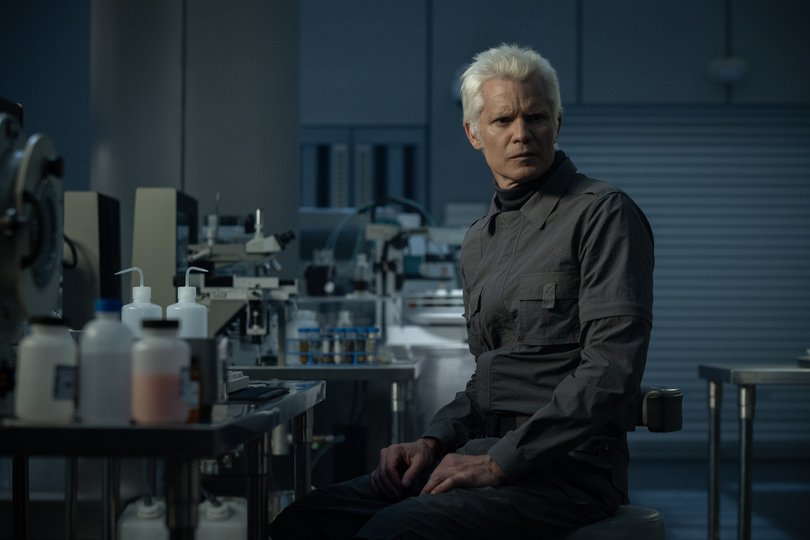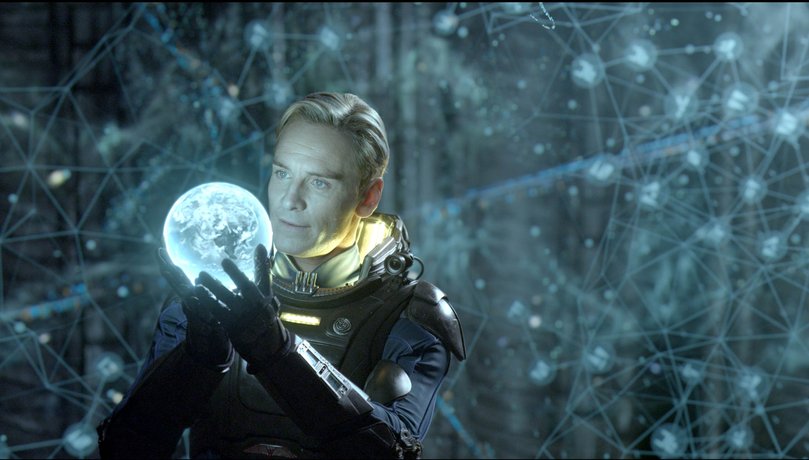There are decades of Alien lore. Here’s where the new series fits in.
With the release of the new FX series Alien: Earth, a sci-fi saga set in the 22nd century is trying to play catch-up to the 21st.

Alien - the creature and the franchise - is a shape-shifter.
In the interplanetary dystopia of the Alien movies, the parasitic creature that parasitic CEOs are always trying to capture - and that blue-collar space truckers, Marines, miners or convicts are always trying to escape - grows to full physical maturity within hours and tends to take on the physical characteristics of whatever mammal it hatched from. That endless mutability is also a characteristic of the screen stories inspired by these creatures, as the splashy new FX series Alien: Earth demonstrates. It pays homage to the constellation of pre-existing Alien media without being bound to their previously prescribed life cycle.
Sure, “Earth” is set in the same fictional universe as Ridley Scott’s landmark 1979 sci-fi/horror movie Alien, two years before the events of that film. The main character of the new streaming series - a paediatric cancer patient who becomes the first person to have her consciousness transplanted from a frail human body into an age-and-illness-proof synthetic one - renames herself Wendy upon her transformation from a sickly kid into a prematurely grown-up lady played by Sydney Chandler.
Sign up to The Nightly's newsletters.
Get the first look at the digital newspaper, curated daily stories and breaking headlines delivered to your inbox.
By continuing you agree to our Terms and Privacy Policy.Her new handle reflects a fascination with Peter Pan that creator and executive producer Noah Hawley - who wrote all eight episodes of the new series and directed the two strongest - has embedded throughout. He even has Boy Kavalier, the insufferable tech bro responsible for this breakthrough - played by Adderall-eyed Samuel Blenkin - read J.M. Barrie’s 1911 novel Peter Pan and Wendy aloud to Wendy and several other terminally ill children he repots into sturdy synthetic vessels.
Kavalier doesn’t rescue these kids from death out of altruism. He intends to market immortality as a luxury item. (His outfit, Prodigy, is the youngest of five warring megacorporations that by the early 22nd century have supplanted nations to rule the Earth and its solar system, we quickly learn.) Beyond that, he’s hoping one of his human-synthetic “Hybrids” will eventually prove smart enough to keep up with him. Greed has been a part of the Alien-iad from the beginning, but the show’s exploration of megalomania is a relatively new wrinkle. (Yes, the razor-toothed, acid-blooded beasts you remember from the movies are here, too, along with some just-as-gross new monsters that evidently belong to a different unholy species than the H.R. Giger-designed Xenomorph.)
The self-conscious “Pan”-coding of Alien: Earth is, to my lifelong Alien-obsessive way of thinking, the most pretentious, least successful aspect of what is otherwise a surprisingly robust and compelling attempt to transplant an intermittently brilliant feature film franchise into the host body of a prestige TV show: serialized, lavishly budgeted (more than $US250 million, purportedly) and with no content restrictions to prevent it from being as gory, profane and generally upsetting as any of the Alien features. (Phew!)
This format did not exist when the original Alien burst through our collective rib cage 46 Memorial Day weekends ago. Nor did the notion of a continuity between weekly TV series and feature films. That summer, when Alien shared multiplex space with the likes of Moonraker, Rocky II and The Muppet Movie, Paramount was running up massive cost overruns in a sprint to make the Christmas ’79 release date it had advance-booked for Star Trek: The Motion Picture, which had been upscaled from a follow-up TV series to a feature only when the runaway success of Star Wars in 1977 sent execs scrambling for whatever pew-pew spaceship stuff they could find. None of them had yet grasped how much money there was to be made by taking sci-fi, comic books and such seriously, and treating the fictional canon of each such saga with the kind of sober dramaturgy previously reserved for Greek myth and Elizabethan drama.
Comic-book publishers were among the first to discover that the kudzu-like accumulation of lore over decades of storytelling needed some judicious pruning. Hawley has given himself license to deviate from the already loose continuity established by Alien and the half-dozen big-screen prequels and sequels it spawned. (That tally does not include 2004’s Alien vs Predator or its 2007 sequel because, like most fans and creators of the franchise, I prefer to ignore them.) And just like most Alien movies, Hawley’s series is accessible even if you never saw or have just forgotten the prior chapters.
You can see why Hawley, who previously brought his mordant sensibility to the FX series Legion (a distant cousin of the Marvel/Fox X-Men franchise) and Fargo (which borrows its title and tone, but little else, from the beloved 1996 Coen brothers crime flick) would be enticed. A specimen of IP named for a parasitic species that gestates inside living hosts is naturally a Trojan horse for whatever thematic obsessions an ambitious creator wants to impregnate it with. The Alien-iad has always been an auteur-driven franchise, even if nearly every individual entry within has had a complicated authorship.
The credits of the new show say “based on elements created by Dan O’Bannon and Ronald Shusett,” the screenwriters who wrote the initial draft of Alien, though producers David Giler and Walter Hill did a Page 1 rewrite before Scott’s cameras began rolling in the summer of 1978. It was Giler and Hill who hired James Cameron in 1983 to write what was still called Alien II, and who subsequently slapped their names in front of his on the treatment he fleshed out from their almost comically sketchy two-paragraph blueprint. Cameron wouldn’t be granted his dream shot of directing Aliens until after The Terminator, which he had written and directed, opened in October 1984, surprising everyone - particularly the sceptical execs who had paid for it - with its healthy box office and strong notices.

By the time Alien 3 opened in May 1992, the movie had already burned through three directors - David Fincher, who would go on to make Zodiac, The Social Network and many other epochal films, still has his name on the picture, though he’s effectively disowned it - and a double-digit number of writers. (Giler and Hill were so stymied as to how to answer Fox’s demand for another instalment after Aliens became a smash that a 1991 teaser trailer for the not-yet-shot three-quel suggested that this Alien would take place on, um, Earth.) When Scott returned to the series with the heady 2012 prequel Prometheus, he arrived determined to steer away from Giger’s monsters, reinventing the series as a more 2001: A Space Odyssey-inflected inquiry into the origins of consciousness. The Scott-directed sequel to that film, 2017’s Alien: Covenant, continued that exploration, albeit with - as the restoration of the prefix Alien to the title implied - the concession of putting the Xenomorphs back in.
All of which is to say that Alien doesn’t have an undisputed North Star, a Gene Roddenberry or a George Lucas - even if Star Trek and Star Wars, respectively, were both at their best when their creators delegated the actual writing and directing to others. A perfect organism has many fathers.
While a galaxy of comic books, tie-in novels, role-playing games and other ancillaries have built out this fictional world over the decades, the 1979 film never tells us what year it’s supposed to be, though that was retroactively agreed to be 2122. Alien: Earth, meanwhile, tells us explicitly it’s set in 2120 and that the expendable crew of the corporate starship Maginot is on its way home from a specimen-collection mission that’s kept them at sea and (mostly) in hibernation for 65 years. None of this lines up with Prometheus, which tells us that the mission to seek out the “engineers” who just maybe created the human race and the Xenomorphs, too - it’s a wild movie, folks! - happens in 2093. And that it was a Weyland mission, as the corporation had not yet merged with Yutani. Why, then, does the Maginot of the 2120-set Alien: Earth carry Weyland-Yutani branding, if its 65-year mission launched in the 2050s?
This kind of internal logic has always been a little bit overrated. Arthur Conan Doyle contradicted his own made-up history for Sherlock Holmes all the time. Alien: Resurrection ducked the issue by telling us that 200 years had passed since series anchor Ellen Ripley’s death at the end of the previous film - allowing Sigourney Weaver to reprise her most famous role as a clone. (In one of that 1997 film’s more 1997 jokes, the Weyland-Yutani corporation, the pitiless outfit that’s forever sacrificing its employees in the hope of procuring a Xenomorph specimen intact, is revealed to have long since been acquired by Walmart.) By the time of Alien: Earth, what’s scarier than a supercharged enabler of the gig economy is an amoral tech bro such as Kavalier, who orders his subordinates, after the Maginot crashes into New Siam, one of the cities in his territory, to “triage the rescue effort by income bracket.”
In the original Alien, these corporate imperatives are embodied by Ian Holm’s Ash, the science officer aboard the space freighter Nostromo who is eventually unmasked as an android. And while we think of him as a two-faced backstabber who repeatedly undermines his crewmates’ attempts to save themselves by slaying the beast, he’s just following his programming. The notion of rebellious killer bots is one Scott would explore in his next film, 1982’s Blade Runner - a deliberately paced, talky sci-fi now as revered as Alien, though it bombed upon release. When Scott returned to the world of Alien after a 33-year break with Prometheus and Alien: Covenant, both set before the original film, he made Michael Fassbender’s David - a curious, amoral android who quickly learns to despise the puny humans who created him - the main focus of the story.
This is where Scott and his successor Hawley find common cause. Ultimately, these movies and their streamer offspring aren’t about a genocidally invasive species or a resourceful but unlucky space-trucker named Ripley. They’re not even about the face-hugging, chest-bursting savagery of interplanetary capitalism. They’re about the insoluble riddle of life’s creation. “We made you because we could,” a drunken scientist tells David in Prometheus.

Though Scott has an executive producer credit on Alien: Earth, he seems to have had less of an oversight role on the series than he did on the 2024 movie Alien: Romulus, which saw Uruguayan horror director Fede Álvarez paying skilful homage to the prior movies without introducing any fresh ideas. Hawley, with his saga of warring megacorporations and sentient bots, human-synthetic hybrids and cybernetically enhanced humans all engaged in a power struggle where the titular alien is little more than a MacGuffin, is up to something deeper, without stating his theme as clumsily as Scott did in Prometheus.
Maybe he should have called his new show Alien: Us.”
Special to The Washington Post
